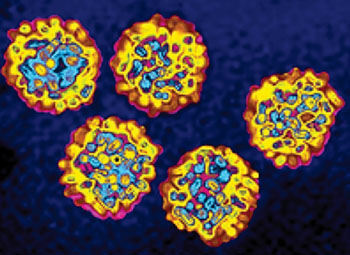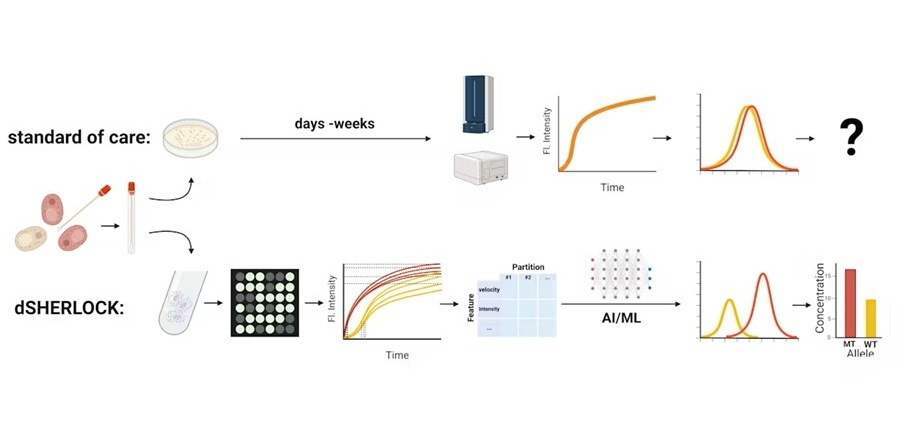Hepatitis C Infection Screening Could Save Lives
By LabMedica International staff writers
Posted on 26 Jan 2015
Chronic hepatitis C (HCV) infection is difficult to detect during routine medical visits because there are usually no symptoms and it is often diagnosed in the advanced stages of the disease, making treatment difficult and often resulting in death. Posted on 26 Jan 2015
HCV infection is difficult because the disease is clinically silent in most of those affected, and patients in whom the infection goes unrecognized and untreated may present with late-stage disease, which has potentially fatal complications, but these complications may be reduced by offering timely treatment.

Image: Electron micrograph of particles of the hepatitis C virus (Photo courtesy of James Cavallini).
A team of scientists at the University of Toronto (ON, Canada) developed a modelling study with four screening strategies for adults 25 to 64 or 45 to 64 years of age to determine cost effectiveness. The screening strategies were: No screening, the current practice; Screen and treat with pegylated interferon-ribavirin: patients were offered a one-time screen via blood test for the hepatitis C antibody from their primary care physician. Patients with a confirmed positive result would be referred to a specialist and receive pegylated interferon-ribavirin treatment according to current guidelines; Screen and treat for specific virus genotype; In addition to the strategy above, patients would be offered different direct-acting antiviral therapies according to the HCV genotype.
Screening involves a blood test for HCV antibody and all tests with a positive antibody result will be followed by a test for HCV ribonucleic acid (RNA) to confirm the infection. The team found that found that with a selective one-time HCV screening program, for every 10,000 people screened, about 63 cases of HCV would be detected, and 59% (37 people) would be eligible for treatment, preventing nine deaths.
William W.L. Wong, PhD, the lead author of the study, said, “Our analyses suggest that in Canada, a one-time program to screen for and treat HCV infection, aimed at birth cohort populations (25–64 or 45–64 years of age), is likely to be cost-effective. The screening programs that we evaluated would identify people with chronic HCV infection who are asymptomatic, which would in turn allow medical treatment to be offered, if needed, according to published guidelines, ideally before development of advanced liver disease.” The study was published on January 12, 2015, in the Canadian Medical Association Journal.
Related Links:
University of Toronto













